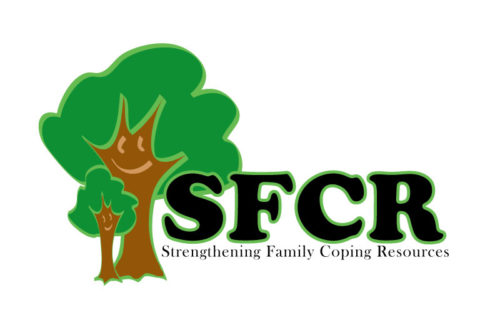Purpose of SFCR Evaluation
The primary goals of SFCR are to decrease the impact of chronic trauma on identified family members and to increase the protective function of the family by improving constructive coping.
To understand whether SFCR is accomplishing its objectives it is necessary to measure both traumatic distress and family coping before the groups begin and at the end of the group. This assessment using standardized instruments is built into the structure of the intervention.
SFCR Assessment Protocol
Providers implementing SFCR are encouraged to participate in the evaluation. Procedures outlined in the assessment protocol request sites to identify a target child from each family for evaluation. This child and his or her primary caregiver are asked to complete the assessment battery prior to enrolling in the group and after completion of the intervention. Inclusion of multiple children in the family in the process is acceptable and assessment of the parent/caregiver is also encouraged.
The assessment protocol includes standardized measures of trauma exposure, trauma symptoms and behavior problems related to the child, measures of family functioning and coping, and a measure of parenting stress. Parent measures include indications of mental health concerns and traumatic distress.
Assessment packets are available to providers who are implementing SFCR and participating in its evaluation. Prior to the start of group, contact Bri Fellows indicating that what assessment packets are needed. Please specify whether you need 0-6 or 7-18 age group packets and how many of each. Indicate whether you are planning to assess parent mental health.
Assessment Procedures
The following procedures are designed to help providers conduct the SFCR evaluation in a consistent fashion supporting the collection of complete, accurate, reliable and valid data.
Assessment Preparation:
- Each family should have their own assessment folder with pre- and post-forms included
- Do not include identifying information on any assessments, it may be helpful to come up with your own unique identifying number for each family
- Ensure all materials match the age range of the child
- Ensure that all materials indicate either pre- or post-assessment and the date of administration
- Review data sharing/consent forms
- Review the assessment day checklist matching the child’s age
- Day of assessment, bring complete assessment packet (including consent form)
Data Sharing, Release of Information and Consent Forms:
- If specific consent forms are not being used, a paragraph should be included in the consent for treatment notifying the parent that their SFCR assessment information will be shared.
- A release of information should be obtained as well.
Assessment Consent Form (if needed)
- Review form and have parent sign form.
- HIPPA form (all participants sign and date)
Assessment Assent Form (if needed)
- Review form and have child sign form
Guidelines and Information about Completing the Assessment:
- The baseline or pre-assessment should be completed prior to the first group. Post assessments should be completed within one (1) month following the final session.
- The assessment is usually conducted in individual sessions with each family. Some sites conduct the assessment using a multi-family group format.
- The entire assessment takes about 2 hours to complete, it is ideal to complete it in one session.
- Children can be interviewed separate from their caregivers, while the caregiver completes the self-report forms.
- It is recommended that the treating clinician not administer the assessment, but this may not be feasible.
- Before the family leaves, check each instrument for completeness.
- Incentives for assessment completion are often beneficial.
- All self-report instruments should be reviewed with the respondent. The respondent should be told what the measure assesses, who they are completing the measure about (self or child). The response format should be explained.
- Offers to read all measures should be made to all families to account for concerns about literacy.
- Questions about specific items should be addressed by trying to re-word or re-phrase the questions but without giving hints about how the respondent should answer.
After the Assessment is Complete
- Scores the assessments if relevant for clinical purposes and treatment planning.
- Call caregiver to provide feedback about the assessment and discuss the family’s appropriateness for participation in group or their progress in treatment.
Completing the Evaluation Process
When assessments are complete:
- Ensure all identifying information is blacked out.
- File all forms in the appropriate family folder.
- Attendance logs, closure questionnaires, family feedback forms, and clinician adherence and competence forms can all be filed in one folder for each group.
- Complete group summary form.
Contact SFCR indicating that assessments are complete and ready to be mailed.
Mail to:
SFCR
737 W. Lombard St
Room 575A
Baltimore, MD 21201
You will receive a confirmation email when packets arrive including a listing of the contents included.
